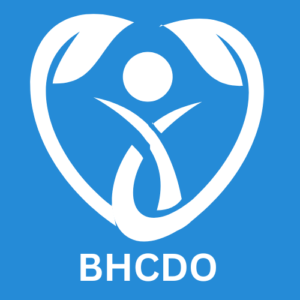Call us
+252-614883858
Better Hope Community Development Organization (BHCDO) prioritizes Water, Sanitation, and Hygiene (WASH) programs as a critical component of its efforts to improve the well-being of vulnerable communities in Somalia. Access to clean water, proper sanitation, and hygiene facilities is essential for maintaining public health, particularly in displacement-affected and underserved areas. BHCDO’s WASH initiatives focus on ensuring that communities have access to safe water and sanitation services, while also promoting hygiene practices to prevent the spread of waterborne diseases.
BHCDO’s WASH programs are designed to be comprehensive and community-centered, recognizing that sustainable improvements in water, sanitation, and hygiene require both infrastructure development and community engagement. The organization works closely with local stakeholders to ensure that WASH interventions are appropriate for the specific needs of each community.
For example, BHCDO integrates community-led total sanitation (CLTS) approaches, where communities are actively involved in identifying their sanitation challenges and finding solutions. This participatory model fosters a sense of ownership and responsibility among community members, encouraging them to maintain the facilities provided and continue practicing good hygiene habits long after the initial intervention.
In addition, BHCDO’s WASH programs are often linked to its other initiatives, such as education and health. Schools that benefit from WASH infrastructure also receive hygiene education, ensuring that children understand the importance of sanitation and are equipped to practice healthy habits. In health centers, improved WASH services help reduce the spread of infections and improve overall health outcomes.
Somalia faces significant challenges in the WASH sector, with many communities lacking the infrastructure needed for safe water and sanitation. Additionally, displacement and conflict have exacerbated these challenges, particularly in urban centers and displacement camps where overcrowding and poor waste management are common.
BHCDO works to address these challenges by focusing on sustainable WASH solutions that are adapted to local conditions. For example, in areas prone to drought, the organization promotes the use of rainwater harvesting systems and water conservation practices to ensure a stable water supply during dry periods. In flood-prone regions, BHCDO helps communities construct elevated latrines and improve drainage systems to prevent the contamination of water sources during floods.
Furthermore, BHCDO recognizes the need for gender-sensitive WASH interventions. Women and girls are often disproportionately affected by poor sanitation and hygiene, particularly in displacement camps, where the lack of privacy and security in latrine facilities can expose them to violence and harassment. BHCDO ensures that WASH facilities are designed with the needs of women and girls in mind, providing gender-segregated latrines and ensuring that hygiene promotion campaigns address menstrual hygiene management.
The impact of BHCDO’s WASH programs is transformative for the communities it serves. By providing access to clean water and sanitation, BHCDO helps reduce the prevalence of waterborne diseases, which are a major cause of illness and death in many parts of Somalia. Improved health outcomes mean that children can attend school more regularly, adults can work and provide for their families, and communities as a whole can thrive.
The construction of latrines and the promotion of good hygiene practices also have profound social and psychological impacts, particularly for women and girls. Access to safe and private sanitation facilities enhances their dignity and reduces the risk of gender-based violence, while hygiene education helps break the cycle of disease transmission in households and communities.
BHCDO’s emergency WASH services provide immediate relief in crisis situations, saving lives and preventing the spread of diseases in displacement camps and disaster-affected areas. These interventions are particularly critical during droughts, floods, or conflict, when access to clean water is severely limited.
BHCDO’s WASH programs are laying the groundwork for long-term sustainability in water, sanitation, and hygiene services. As communities gain access to improved infrastructure and are empowered with knowledge, they become more resilient to the impacts of water scarcity, disease outbreaks, and environmental shocks. BHCDO’s commitment to working with local stakeholders and ensuring community ownership means that the benefits of its WASH interventions will continue to be felt for years to come.
In summary, BHCDO’s WASH initiatives aim to improve access to clean water, enhance sanitation infrastructure, and promote hygiene practices in vulnerable communities. Through its holistic and community-centered approach, BHCDO ensures that these services are sustainable and that individuals have the tools and knowledge needed to maintain good health and hygiene.

Better Hope Community Development Organization is dedicated to transforming lives and building resilient communities across Somalia. Our mission is to provide sustainable and comprehensive solutions in various critical areas to improve the well-being and future prospects of the Somali people.
+252-614883858
info@betterhopecommunitydevelopment.org
Baidoa, Southwest State Somalia
BHCDO© 2024, All Rights Reserved